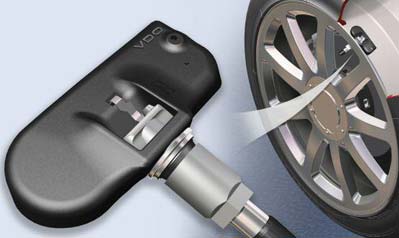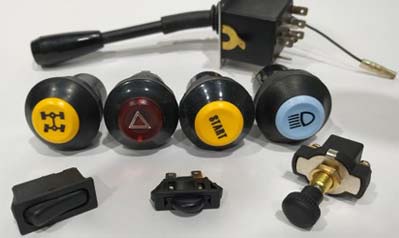Welcome to May Auto Parts Manufacturing & Supplying (MAPMS)
Welcome to May Auto Parts Manufacturing & Supplying (MAPMS)
The sweltering heat of summer can turn even the most enjoyable drive into an uncomfortable ordeal. Your car's air conditioning system, with its intricate components working in harmony, strives to provide a refuge from the scorching temperatures. One such crucial component is the AC condenser, a vital player in the cooling game. When it malfunctions, it can lead to a decline in the effectiveness of your AC system, affecting your driving experience. Understanding the indicators of a failing AC condenser is imperative in ensuring timely intervention and restoring your driving comfort.
Reduced Cooling Efficiency: A prominent sign of a failing AC condenser is a noticeable reduction in cooling performance. If you find that the air blowing from your car's vents isn't as cold as it once was, it's a clear indication that the condenser might be struggling. The condenser's role is to convert high-pressure refrigerant vapor into a cooler liquid state, facilitating effective cooling. When it falters, cooling efficiency takes a hit.
Weak Airflow: A malfunctioning AC condenser can lead to weakened airflow from the vents. This can stem from restrictions in the air passages within the condenser due to accumulated debris, dirt, or even physical damage to the condenser's fins. Reduced airflow impedes the proper dissipation of heat, causing a decline in cooling efficiency.
Unusual Noises: An attentive ear can often detect signs of trouble. When your AC system is running, listen for hissing, clunking, or any other unusual noises. These sounds might signify underlying issues with the condenser or other components of the AC system. The noises could be indicative of refrigerant leaks, loose parts, or mechanical problems within the condenser.
Warm Air from Vents: The performance of the AC condenser directly influences the air temperature coming from the vents. If you're experiencing warm or lukewarm air even with the AC system activated, it could be a sign that the condenser is not effectively converting the refrigerant vapor into liquid. This results in insufficient cooling.
Leakage: Keep an eye out for any fluid leaks beneath your parked car, particularly in the front area where the condenser is located. Refrigerant leaks from a failing condenser can lead to decreased cooling performance and are also environmentally harmful. Any signs of leakage should be addressed promptly by a professional.
Engine Overheating: Surprisingly, the health of your AC condenser can impact more than just your comfort. The condenser is situated in front of the radiator, and if it's damaged or obstructed, it can impede airflow to the radiator. This obstructed airflow can lead to your engine overheating, posing a serious threat to your vehicle's overall well-being.
The decision to replace an AC condenser is multifaceted and should be based on several considerations. The age of your vehicle, the cost of replacement, and the general condition of your car's air conditioning system are all crucial factors.
For newer vehicles in good condition, replacing a faulty condenser might be a viable option. This is particularly true if the rest of the AC system is in good shape. On the other hand, if your vehicle is older or if you're experiencing multiple AC system issues, it might be more economically sensible to take a broader view.
Instead of simply replacing the condenser, it might be worth considering an evaluation of the entire AC system. This approach ensures that you're not only addressing the immediate problem but also future-proofing your cooling comfort. Moreover, a comprehensive assessment might uncover other issues that, if resolved collectively, could lead to a more efficient and effective AC system.
Before making a decision, it's advisable to consult with an experienced mechanic who specializes in automotive air conditioning systems. Their expertise can help you navigate the complexities of your specific situation, offering insight into the best course of action for your vehicle's longevity and your driving comfort.
The auto ac condensor is a linchpin in your car's air conditioning system, responsible for keeping you cool during the hottest of days. Recognizing the telltale signs of a failing AC condenser is crucial in maintaining a comfortable driving environment. Whether it's reduced cooling efficiency, weakened airflow, unusual noises, warm air, leakage, or engine overheating, these indicators should prompt you to seek professional assistance.
When it comes to replacement, the decision to replace the condenser should be weighed against factors such as your vehicle's age, the overall condition of the AC system, and your budget. A holistic evaluation of the AC system might reveal opportunities to optimize performance and efficiency beyond mere condenser replacement.
Ultimately, your goal is to ensure a cool and enjoyable driving experience. By addressing AC condenser issues promptly and making informed decisions, you can embark on your journeys with the confidence of knowing that your AC system is primed to deliver the comfort you deserve.
Other Knowledge Articles about Car AC Condensers:
What Is the Function of Car Ac Condenser?
Exploring Auto AC Condensers: Functions, Failures, and Replacement Costs
Popular Automotive Spare Parts
 Operating Principle and Conditions of Airbag Pressure Sensor
READ MORE >
Operating Principle and Conditions of Airbag Pressure Sensor
READ MORE >
 Pencil Ignition Coil: A Safe Choice
READ MORE >
Pencil Ignition Coil: A Safe Choice
READ MORE >
 Judgment of Good or Bad Auto Ignition Coil and Analysis of Service Life
READ MORE >
Judgment of Good or Bad Auto Ignition Coil and Analysis of Service Life
READ MORE >


